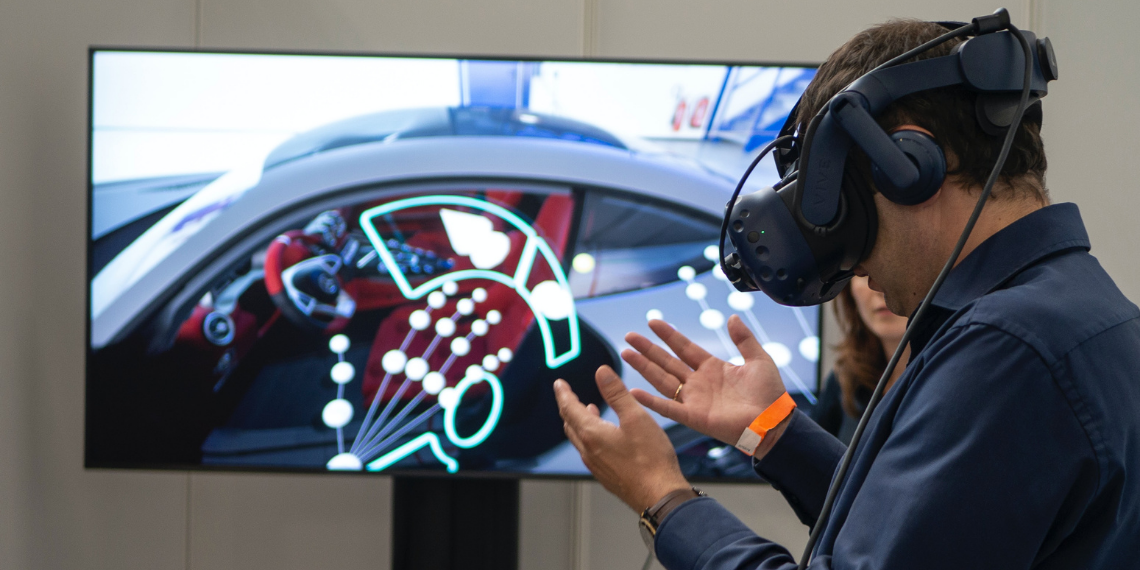INESC TEC, through the Centre for Information Systems and Computer Graphics (CSIG), participates in the project Life Skills VR – Life Skills for Employment in COVID-19 Era through VR Innovation, whose main objective is to support European citizens in their job search, especially those most affected by the COVID-19 pandemic, and the negative consequences in terms of labour market.
In this sense, the project will focus on the development of a virtual reality application that combines gamification techniques and the Holland model, or RIASEC, which defines six types of personalities/environments: Realistic, Investigative, Artistic, Social, Enterprising and Conventional. This application will be able to identify the users’ competences and vocation, guiding them while they search for jobs, while promoting the acquisition of new skills. The proposed solution also seeks to fill the gaps in the current models of vocational tests, offering a solution that is sufficiently engaging and appealing to younger generations.
The INESC TEC team, consisting of Leonel Morgado, professor at Universidade Aberta (UAb), António Coelho, professor at the Faculty of Engineering of the University of Porto, and Demetrius Lacet, PhD student of Web Science at UAb/University of Trás-os-Montes and Alto Douro (UTAD), will focus on determining needs and specifying the application, as well as testing the application nationwide. In addition, INESC TEC will organise the final evaluation meeting, bringing together the remaining partners, in order to verify the project’s implementation and present the main results.
The Portuguese version of the app will be tested in 2023 by employment agencies, career guidance centres, non-governmental organisations, universities and other institutions dedicated to training. Italy, Greece and the UK will also perform test-pilots.
In addition to INESC TEC, the project includes the following partners: Center for Factories of the Future Limited (UK) (project leader), IDEC (AINTEK A.E.) (GR), Fondazione Polo Universitario Grossetano and ARTES 4.0 – Advanced Robotics and Enabling Digital Technologies & Systems (IT) and Mediterranean Maritime Research and Training Center (MLT).
The Life Skills VR began in May 2021, with approximately €300K of funding through the ERASMUS+ programme, the European Union programme for education, training, youth and sport for 2014-2020. It aims to modernise education, training and youth work across Europe. The programme is managed in the UK by the Erasmus+ UK National Agency, which is a partnership between the British Council and Ecorys UK.
The INESC TEC researchers mentioned in this news piece are associated with UAb, UP-FEUP and INESC TEC.



 News, current topics, curiosities and so much more about INESC TEC and its community!
News, current topics, curiosities and so much more about INESC TEC and its community!